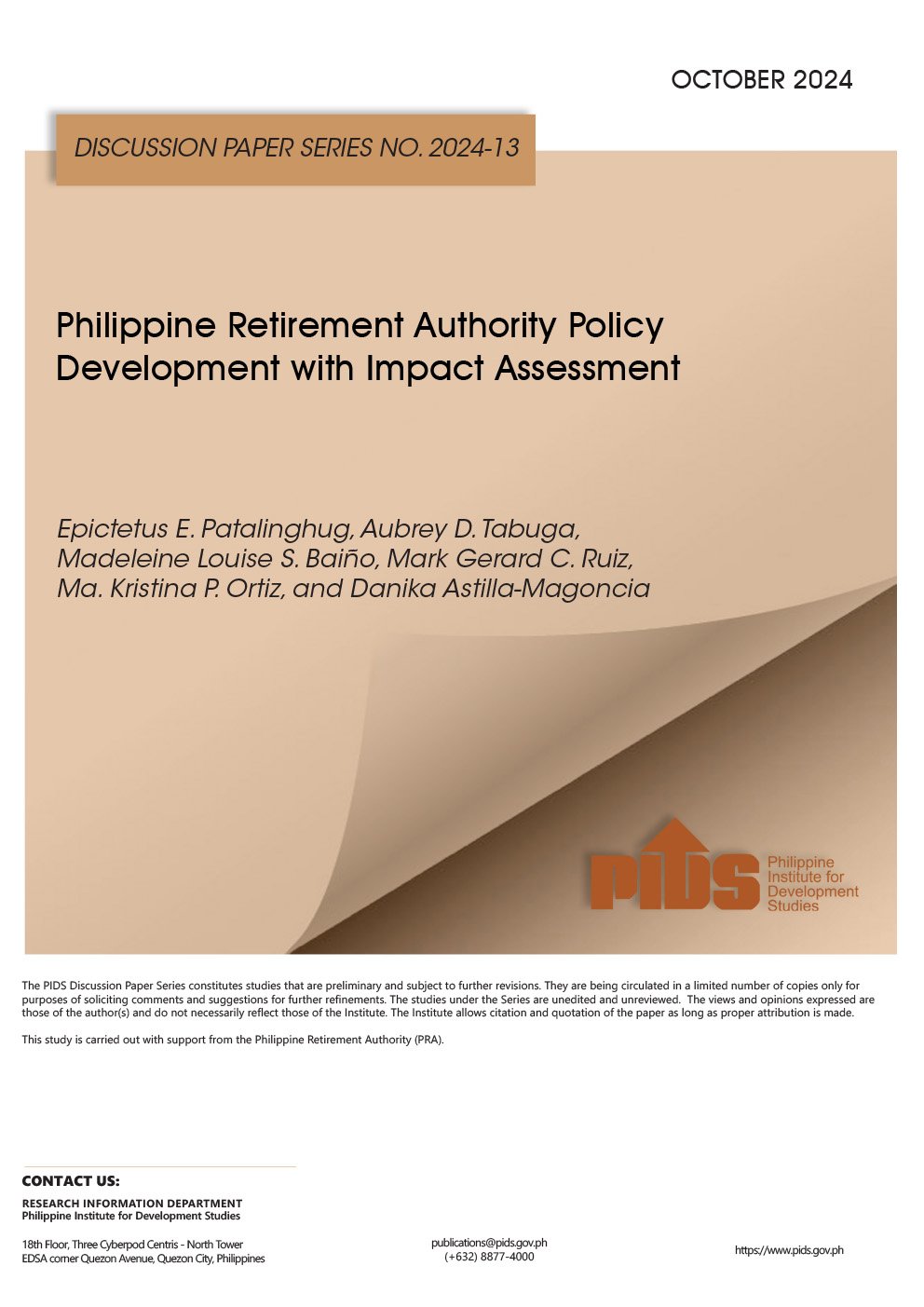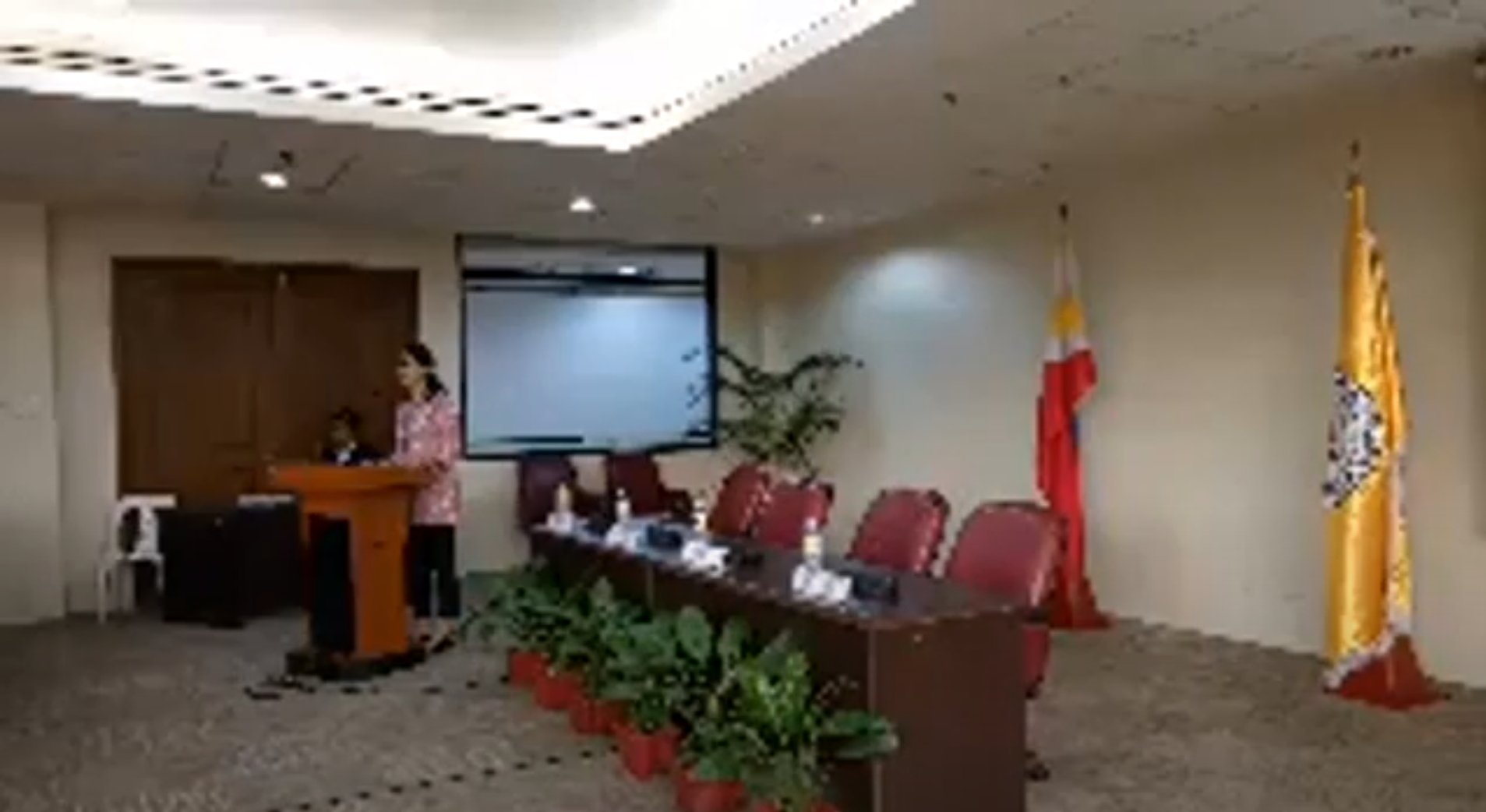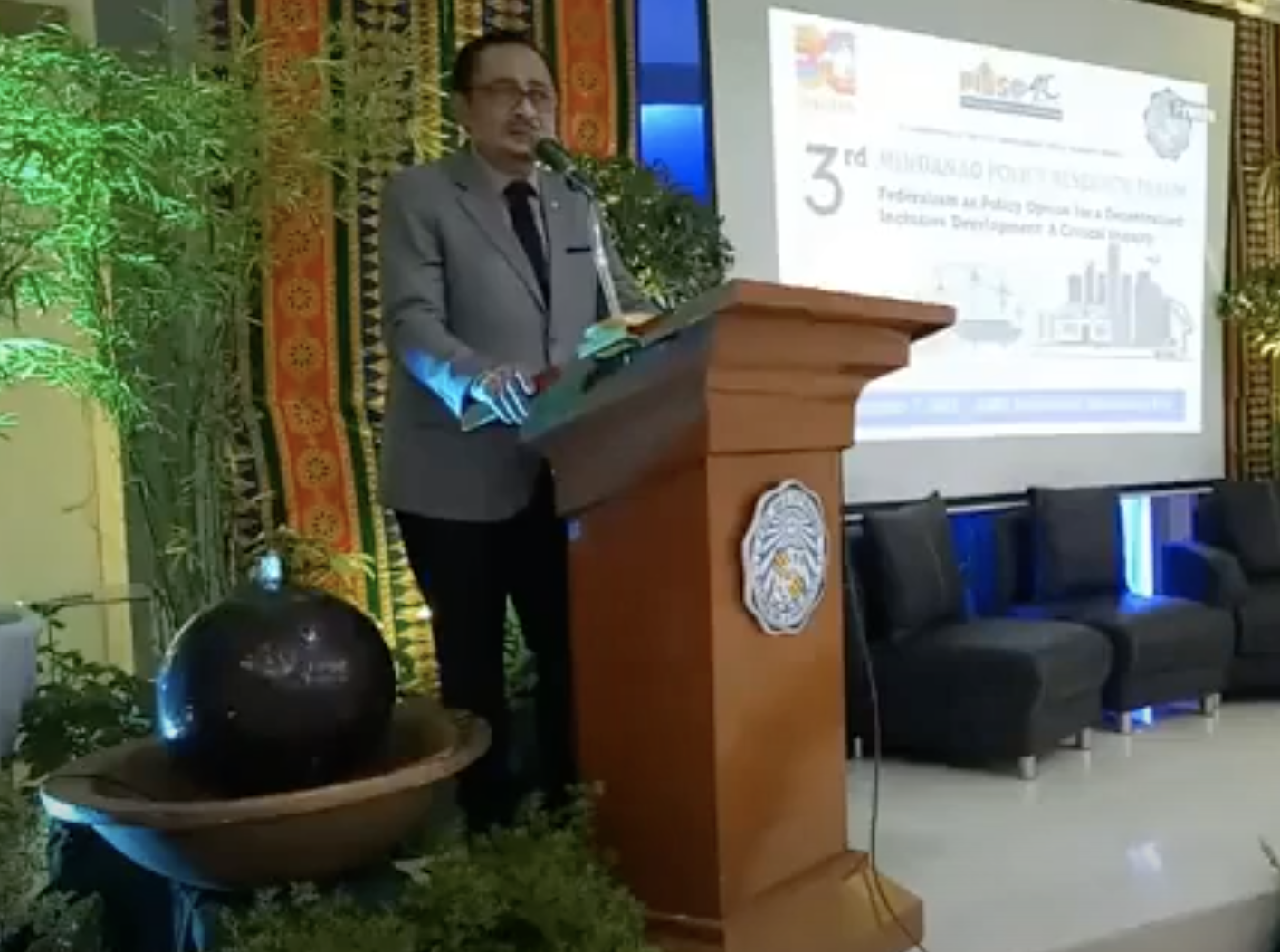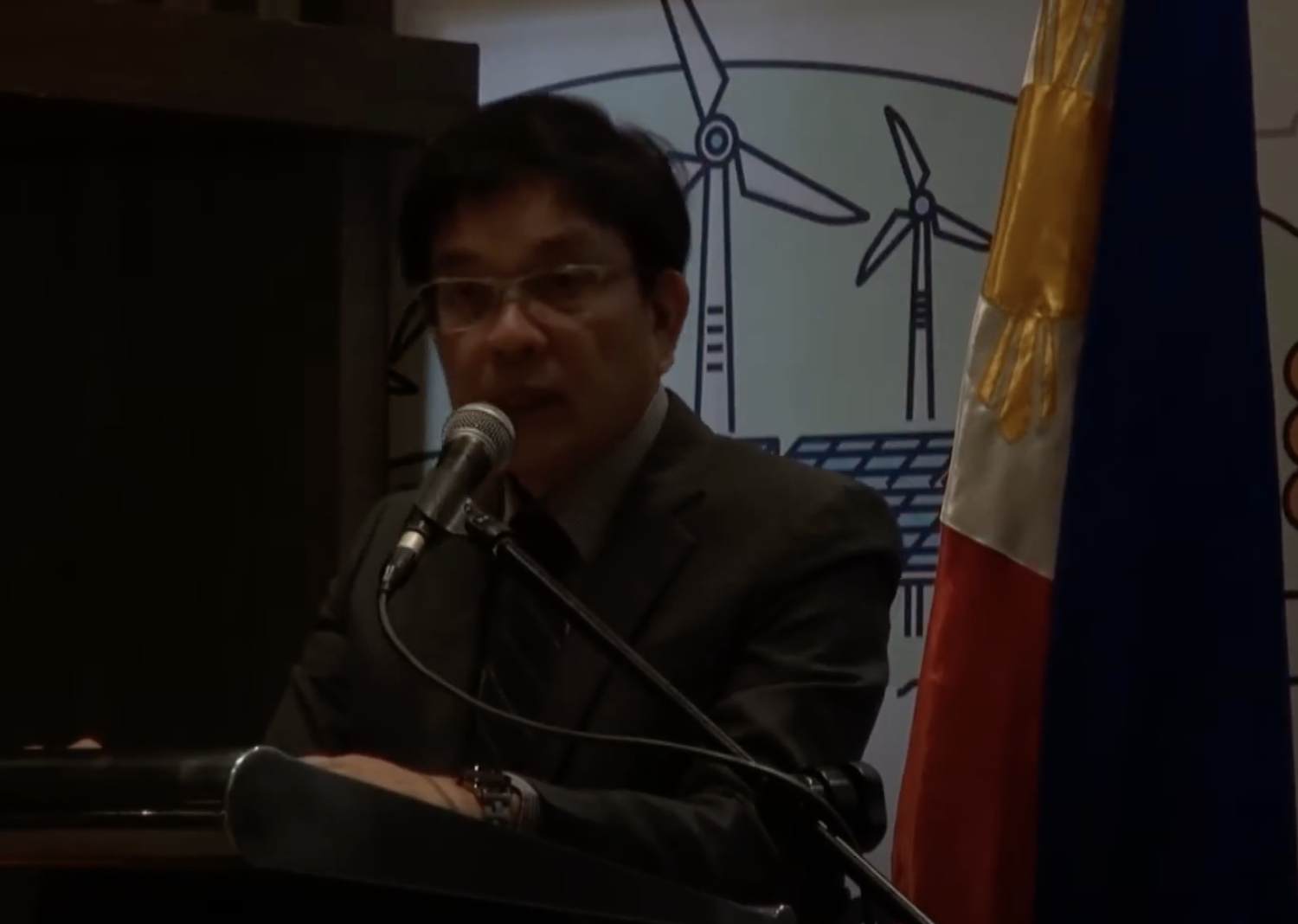Part Four
INSTITUTE for Autonomy and Governance Executive Director Benedicto Bacani said that, if the Philippines is going to change its form of government, “at least we should change for the better and not just for the sake of it”.
Speaking in a forum on federalism in Zamboanga in September, Bacani added the Philippines must consider that in a federal system, under the shared rule, “the central government must necessarily contract while regional governments should expand”.
“And now the regional governments will decentralize administrations to local government units [LGUs], then you have regional state governments, which are coherent political structures, composed of the regional government, the state government and the LGUs,” he said.
When you federalize, according to Bacani, “the key there is for the regional states to really function as one coherent coordinated body with its local government units.”
He said, “This is where the problem lies, because our LGUs and local politicians would never agree, I think, because of their entrenched political interests.”
Political economy
BACANI explained, if politicians move to federalize but with the central government still maintaining a direct relationship with LGUs—just what is happening with the Autonomous Region in Muslim Mindanao, “the political economies of LGUs would remain.”
This, he said, is because LGUs would still invoke the national Local Government Code (LGC) and the internal revenue allotment (IRA). “They would not accept a structure where the IRA is coursed through the regional governments,” Bacani said.
Under the Local Government Code of the Philippines (Republic Act 7160), the IRA is an LGU’s share of revenues from the Philippine national government. Provinces, independent cities, component cities, municipalities and barangays each get a separate allotment. Section 284 of the LGC provides the formula for the distribution of the allotment—who gets how much.
The IRA is automatically released to each LGU and may not be held back by the national government for any reason, except in the extreme case of an “unmanageable public sector deficit”. In such a case the allotment may be adjusted but provided it not be set to “be less than 30 percent of the collection of national internal-revenue taxes of the third fiscal year preceding the current fiscal year”.
Resistance
ACCORDING to Bacani, “The current local government heads would resist any adjustment in the IRA. Because that’s where their power lies.”
Rosario Manasan, Philippine Institute for Development Studies senior research fellow, noted this as one of several fiscal problems being experienced in the current unitary system that should be resolved should the country decided to shift to federal system.
For one, “There is inadequate equalization,” she said.
“There are LGUs that get too much fund transfers relative to what they need while others have very limited,” Manasan said. “Take note that Metro Manila has the biggest collection of tax revenues because many companies are based here, yet, they still receive IRA.”
She added there is “too much reliance on block grants for different objectives” and “too much reliance on procedural routes”.
These, for her, are counterproductive methods.
“Let us think of other designs of revenue transfers [that are] more appropriate for other objectives,” Manasan said. “Under federalism, it’s important to focus on subnational government credit finance because we note of the many experiences of South American federal countries. The bankruptcies in many of these governments paved way for them having fiscal crises, hyperinflation [and] low growth.” She cited the cases of Brazil and Argentina in the past years.
Deficiencies
MANASAN also pointed out the deficiency in the country’s political economy. This, she said, is expressed in the long overdue legislative overhaul of the LGC.
That, according to her, is fairly difficult. Citing a study, Manasan explained the difficulty is because “Congress, as an institution, is cautious in expanding the resource-base of the LGUs.”
“System-strong LGUs depend less on national legislators for financial assistance and, hence, would result in loss of political leverage of the members of Congress.” Manasan added this situation is what others call as symbiotic relationship between the congressman and the local politician. Congress like that they control the money in order to control local politicians, she said.
A fiscal decentralization framework, Manasan said, “would also mean independent monetary policy, currency planning—which would mean independent banks for subnational governments—while exclusive with federal are the national defense, foreign policy, international trade and others.” With tax assignment, Manasan said there should be local autonomy.
“They [federal states] should be able to raise money on their own and not be dependent on IRA,” she said. “What we are looking for are taxes that should fall with local states.”
She cited as example the residence-based surtax of the personal income tax from the residents of the local states should go directly to those local states.
Power
“OVER and above that, we should allow state governments the power to impose an additional 1 percent from taxable income of the residents,” she said.
Manasan said the PIDS estimates undertaking such move would give P19-billion collection to local states.
We will transfer the power for motor vehicle-user charge; that would produce P13 billion,” she explained. “We need to come up with additional similar measures to assure a certain degree of financial autonomy to the federal states.” Still, Manasan admitted “these are not enough”.
“Because when we computed an aggregate of these, the amount would not be enough and they would still require fund transfer from the federal government, say P80 percent, which still is a huge dependence.” Manasan also said, as a rule of thumb, “state’s borrowing should be within their capacity to manage.” She discourages bailout for a bankrupted state.
“We should think about these seriously because these are the problems faced by many South American countries.”
Costs
MANASAN said the move to a federal form of government is not free.
“Because we are adding a new layer, this would entail overhead cost.” She said the PIDS estimated that “each state, for instance, would have a governor, vice governor, staff and operating expenses.”
“[There would be] additional senators at the national [level] because of the need for representation in the second chamber,” Manasan said. “There would [also] be legislative body for every state—13 in all as currently proposed.” She said the PIDS’s estimated cost for this is anywhere from P33 billion to 63 billion per year depending on the version of federalism. “And this is only for running the government, and not including anything for programs or project intended for the people.”
To be concluded
INSTITUTE for Autonomy and Governance Executive Director Benedicto Bacani said that, if the Philippines is going to change its form of government, “at least we should change for the better and not just for the sake of it”.
Speaking in a forum on federalism in Zamboanga in September, Bacani added the Philippines must consider that in a federal system, under the shared rule, “the central government must necessarily contract while regional governments should expand”.
“And now the regional governments will decentralize administrations to local government units [LGUs], then you have regional state governments, which are coherent political structures, composed of the regional government, the state government and the LGUs,” he said.
When you federalize, according to Bacani, “the key there is for the regional states to really function as one coherent coordinated body with its local government units.”
He said, “This is where the problem lies, because our LGUs and local politicians would never agree, I think, because of their entrenched political interests.”
Political economy
BACANI explained, if politicians move to federalize but with the central government still maintaining a direct relationship with LGUs—just what is happening with the Autonomous Region in Muslim Mindanao, “the political economies of LGUs would remain.”
This, he said, is because LGUs would still invoke the national Local Government Code (LGC) and the internal revenue allotment (IRA). “They would not accept a structure where the IRA is coursed through the regional governments,” Bacani said.
Under the Local Government Code of the Philippines (Republic Act 7160), the IRA is an LGU’s share of revenues from the Philippine national government. Provinces, independent cities, component cities, municipalities and barangays each get a separate allotment. Section 284 of the LGC provides the formula for the distribution of the allotment—who gets how much.
The IRA is automatically released to each LGU and may not be held back by the national government for any reason, except in the extreme case of an “unmanageable public sector deficit”. In such a case the allotment may be adjusted but provided it not be set to “be less than 30 percent of the collection of national internal-revenue taxes of the third fiscal year preceding the current fiscal year”.
Resistance
ACCORDING to Bacani, “The current local government heads would resist any adjustment in the IRA. Because that’s where their power lies.”
Rosario Manasan, Philippine Institute for Development Studies senior research fellow, noted this as one of several fiscal problems being experienced in the current unitary system that should be resolved should the country decided to shift to federal system.
For one, “There is inadequate equalization,” she said.
“There are LGUs that get too much fund transfers relative to what they need while others have very limited,” Manasan said. “Take note that Metro Manila has the biggest collection of tax revenues because many companies are based here, yet, they still receive IRA.”
She added there is “too much reliance on block grants for different objectives” and “too much reliance on procedural routes”.
These, for her, are counterproductive methods.
“Let us think of other designs of revenue transfers [that are] more appropriate for other objectives,” Manasan said. “Under federalism, it’s important to focus on subnational government credit finance because we note of the many experiences of South American federal countries. The bankruptcies in many of these governments paved way for them having fiscal crises, hyperinflation [and] low growth.” She cited the cases of Brazil and Argentina in the past years.
Deficiencies
MANASAN also pointed out the deficiency in the country’s political economy. This, she said, is expressed in the long overdue legislative overhaul of the LGC.
That, according to her, is fairly difficult. Citing a study, Manasan explained the difficulty is because “Congress, as an institution, is cautious in expanding the resource-base of the LGUs.”
“System-strong LGUs depend less on national legislators for financial assistance and, hence, would result in loss of political leverage of the members of Congress.” Manasan added this situation is what others call as symbiotic relationship between the congressman and the local politician. Congress like that they control the money in order to control local politicians, she said.
A fiscal decentralization framework, Manasan said, “would also mean independent monetary policy, currency planning—which would mean independent banks for subnational governments—while exclusive with federal are the national defense, foreign policy, international trade and others.” With tax assignment, Manasan said there should be local autonomy.
“They [federal states] should be able to raise money on their own and not be dependent on IRA,” she said. “What we are looking for are taxes that should fall with local states.”
She cited as example the residence-based surtax of the personal income tax from the residents of the local states should go directly to those local states.
Power
“OVER and above that, we should allow state governments the power to impose an additional 1 percent from taxable income of the residents,” she said.
Manasan said the PIDS estimates undertaking such move would give P19-billion collection to local states.
We will transfer the power for motor vehicle-user charge; that would produce P13 billion,” she explained. “We need to come up with additional similar measures to assure a certain degree of financial autonomy to the federal states.” Still, Manasan admitted “these are not enough”.
“Because when we computed an aggregate of these, the amount would not be enough and they would still require fund transfer from the federal government, say P80 percent, which still is a huge dependence.” Manasan also said, as a rule of thumb, “state’s borrowing should be within their capacity to manage.” She discourages bailout for a bankrupted state.
“We should think about these seriously because these are the problems faced by many South American countries.”
Costs
MANASAN said the move to a federal form of government is not free.
“Because we are adding a new layer, this would entail overhead cost.” She said the PIDS estimated that “each state, for instance, would have a governor, vice governor, staff and operating expenses.”
“[There would be] additional senators at the national [level] because of the need for representation in the second chamber,” Manasan said. “There would [also] be legislative body for every state—13 in all as currently proposed.” She said the PIDS’s estimated cost for this is anywhere from P33 billion to 63 billion per year depending on the version of federalism. “And this is only for running the government, and not including anything for programs or project intended for the people.”
To be concluded









